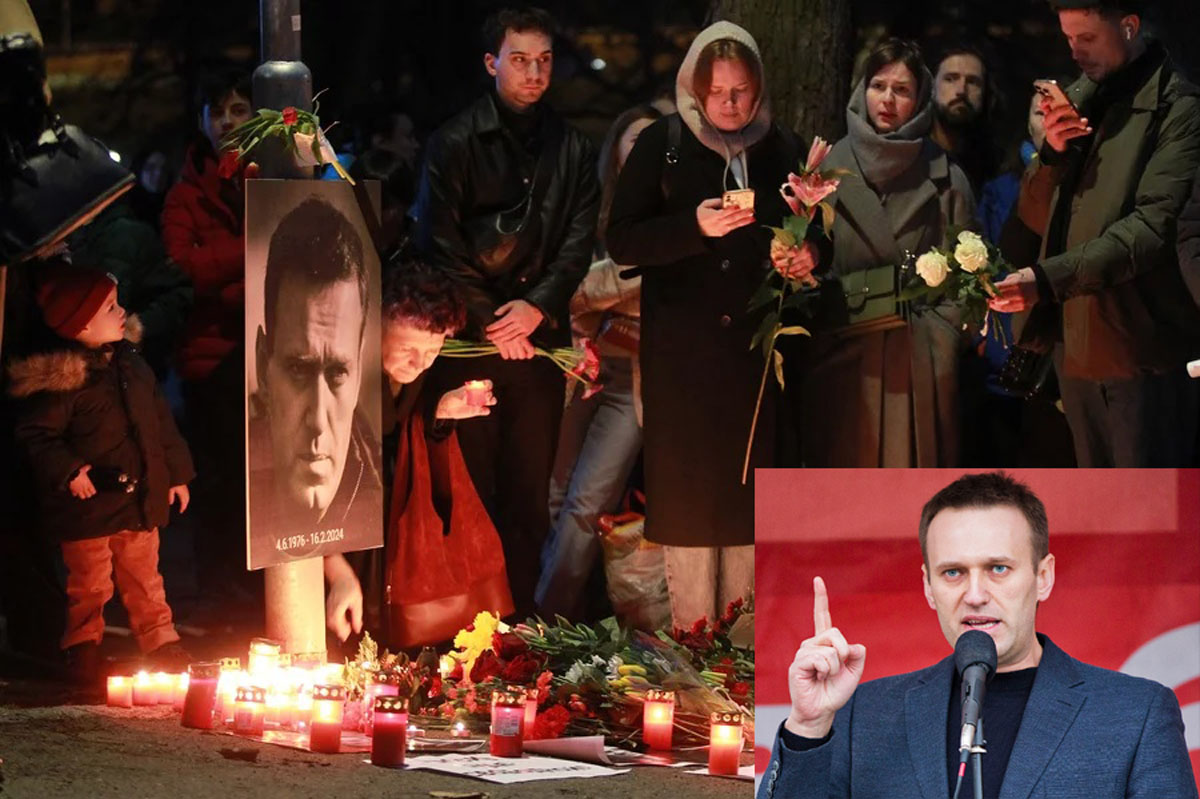Explore the enigmatic saga surrounding Alexei Navalny‘s demise within Russia’s turbulent political landscape under Putin’s rule. Delve into the mysterious circumstances that have shrouded Navalny’s fate and the broader context of opposition figures’ struggles against the Kremlin.

Unraveling the Legacy of Alexei Navalny’s Opposition in Putin’s Russia
The demise of Alexei Navalny, a prominent critic of Putin, within the confines of a penal colony in the Arctic region of Russia, has stirred profound shock but lacked astonishment.
Over the years, adversaries and critics of Vladimir Putin, the Russian leader, have met their ends through various means such as shootings, poisoning with radioactive or nerve agents, or fatal falls from elevated points.
Alexei Navalny, the Russian political figure who adamantly opposed Putin, succumbed to death at the age of 47 while incarcerated in a facility known as “Polar Wolf,” where he served a protracted sentence.
Evgenia Kara-Murza, the spouse of another imprisoned opposition leader, expressed on X, formerly Twitter, that Navalny appeared in good health and high spirits just a day prior to his demise.
Navalny was captured on video, smiling during his court appearance, and even managed to convey Valentine’s Day wishes to his wife. Yet, less than 24 hours later, authorities announced his passing.
Before his imprisonment in Russia in 2021, Navalny survived an assassination attempt that nearly claimed his life during a flight from Siberia to Moscow. He sought urgent medical attention in Berlin, where physicians confirmed he had been poisoned with a nerve agent known as Novichok. Despite the grave risks, Navalny returned to Russia after recuperating.
Navalny’s name joins a lengthy roster of opposition figures, dissenters, and journalists who have perished under suspicious circumstances — or narrowly survived poisonings — from London to Moscow.
Boris Nemtsov, a predecessor to Navalny in leading Russia’s opposition against Putin’s two-decade rule, met a prominent demise near the Kremlin in 2015. A vocal critic of Putin, Nemtsov previously served as a deputy prime minister under Boris Yeltsin.
The case of Alexander Litvinenko, a former spy, stands as a poignant example. Litvinenko was poisoned in a central London hotel in 2006 with the highly radioactive substance polonium. He accused Putin of complicity in the 1999 bombing of a Russian apartment block, which claimed hundreds of lives and served as a pretext for the Second Chechen War.
Sergei Skripal, a retired military intelligence colonel, and his daughter Yulia fell ill during a visit to Salisbury, England, in 2018. In the past, Skripal was imprisoned in Russia for 13 years after working with the British intelligence service MI6 to identify Russian spies operating in Europe. Both survived the poisoning, attributed to the nerve agent Novichok, which was also used against Navalny.
The list of suspicious incidents traces back to the early days of Putin’s leadership. In 2006, journalist and human rights advocate Anna Politkovskaya was gunned down in the lobby of her apartment building. Politkovskaya’s critical reporting on Russia’s conflict in Chechnya drew the ire of the Kremlin. She endured intimidation, survived a poisoning, and narrowly escaped a mock execution.
Yevgeny Prigozhin, known as “Putin’s chef” before assuming leadership of the Russian mercenary Wagner Group, perished in a plane explosion in midair last summer. The circumstances surrounding the blast remain unexplained. Prigozhin’s demise followed his group’s march on Moscow to protest what he deemed as insufficient support from Russia’s military leadership during intense battles in Ukraine. A pact brokered between Putin and Prigozhin concluded the rebellion in exchange for amnesty and exile in Belarus.
The preceding year saw the demise of Ravil Maganov, the head of Lukoil, Russia’s second-largest oil producer. Maganov purportedly fell from a sixth-floor window at a Moscow hospital at the age of 67. He had advocated for an end to Russia’s incursion into Ukraine, initiated by Putin in 2022.
Alexei Navalny’s death inside Russia’s prison system echoes the fate of Sergei Magnitsky, who died in a prison cell at age 37 in 2009. Magnitsky, known for exposing massive corruption among Russian officials, was detained on charges of tax evasion. Human rights organizations, including the Kremlin’s human rights commission, concluded that Magnitsky had been subjected to beatings and denied medical attention. His case prompted the U.S. Congress to enact the Magnitsky Act in 2012, prohibiting Russian human rights violators from entering the United States, eliciting a reciprocal ban from Russia on American adoptions of Russian children.
